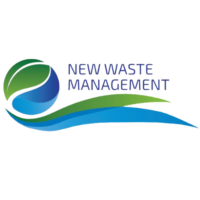Recycling contamination remains a pressing issue for the UK’s waste management system, with significant consequences for the environment and local authority budgets. Contaminants in recycling streams not only reduce the quality of recyclable materials but also increase processing costs, undermining the effectiveness of recycling programmes.
This newsletter dives into the causes of contamination, strategies for reducing it, and the role of cutting-edge technologies like machine learning in addressing this growing challenge.
🚨 Why Recycling Contamination Matters
Recycling contamination occurs when non-recyclable items or improperly cleaned recyclables are placed in recycling bins. This leads to:
- Reduced Material Quality: Contaminants can spoil entire batches of recyclables, making them unfit for reuse.
- Increased Costs: Additional sorting and cleaning are required to separate contaminants, driving up processing expenses.
- Environmental Harm: Contaminated recyclables often end up in landfills or incinerators, contributing to pollution and resource depletion.
A recent report by WRAP revealed that 84% of UK households unintentionally contaminate their recycling bins, often due to confusion about what can and cannot be recycled[1].
🌟 Key Contributors to Recycling Contamination
Some of the most common contaminants include:
- Non-Recyclable Plastics: Items like toothpaste tubes and foil pouches are often mistakenly placed in recycling bins.
- Glass Items: Broken drinking glasses and ceramics are common contaminants that disrupt recycling processes.
- Food Residue: Unwashed containers and leftover food waste significantly affect recycling quality.
💡 Strategies to Reduce Contamination
To address recycling contamination, local authorities can implement these proven strategies:
✅ Public Education Campaigns: Clear, consistent messaging about recycling guidelines is crucial. Community engagement and school programmes can further enhance understanding.
✅ Standardised Recycling Systems: Uniform regional protocols reduce confusion and improve recycling compliance.
✅ Feedback Mechanisms for Households: Providing personalised feedback on recycling habits can help residents improve their sorting behaviours.
✅ Advanced Collection and Sorting Technologies: Modern technologies, such as optical sorters and AI-powered machines, improve contamination detection and separation efficiency.
🧠 The Role of Machine Learning in Tackling Contamination
A recent paper, “Machine Learning Models for Estimating Contamination Across Different Curbside Collection Strategies” (2023), highlights how artificial intelligence can revolutionise recycling processes[2].
- Key Insight: Machine learning models can analyse curbside collection data to identify contamination patterns. This allows councils to predict high-risk areas and optimise collection routes accordingly.
- Impact: By leveraging predictive models, councils can focus education efforts, improve resource allocation, and reduce contamination rates more effectively.
🌍 Success Stories and Solutions in Action
- Coventry’s “Your Rubbish” App: Provides residents with collection reminders and real-time updates, helping to reduce contamination rates by offering clear guidance.
- San Francisco’s Zero Waste Initiative: Implements strict recycling rules and provides feedback to households, achieving a 75% diversion rate[3].
📈 Building a Cleaner Recycling Stream
Reducing contamination in recycling streams is essential for improving the efficiency of the UK’s waste management system. By combining public education, technological innovation, and uniform recycling standards, councils can significantly improve recycling quality while lowering processing costs.
NWM Is Here to Help
At NWM, we specialise in helping councils tackle recycling contamination. From public education campaigns to advanced waste sorting solutions, we provide tailored strategies to improve recycling quality and reduce costs.
🌐 Visit us at www.newwastemanagement.com to explore how we can support your council in reducing contamination.
💡 Let’s clean up recycling, together! Contact us today to discover innovative, cost-effective solutions for tackling recycling contamination in your community.
#RecyclingContamination #WasteManagement #Sustainability
Reference:
[2] https://www.sciencedirect.com/science/article/pii/S0301479723006436


